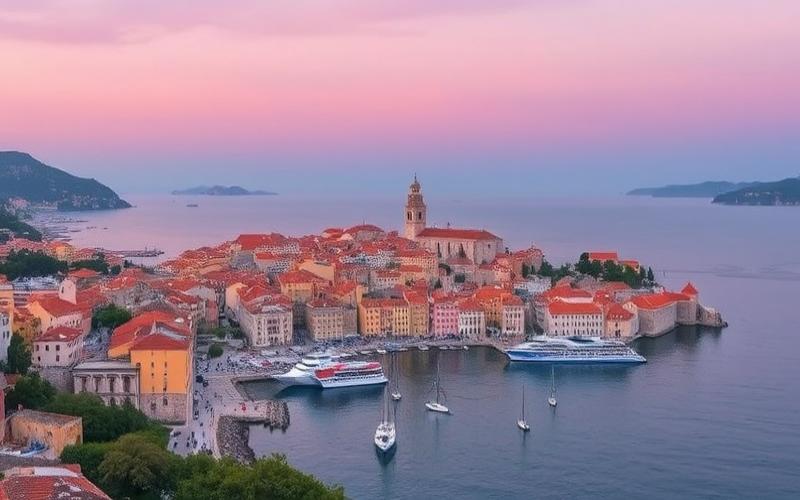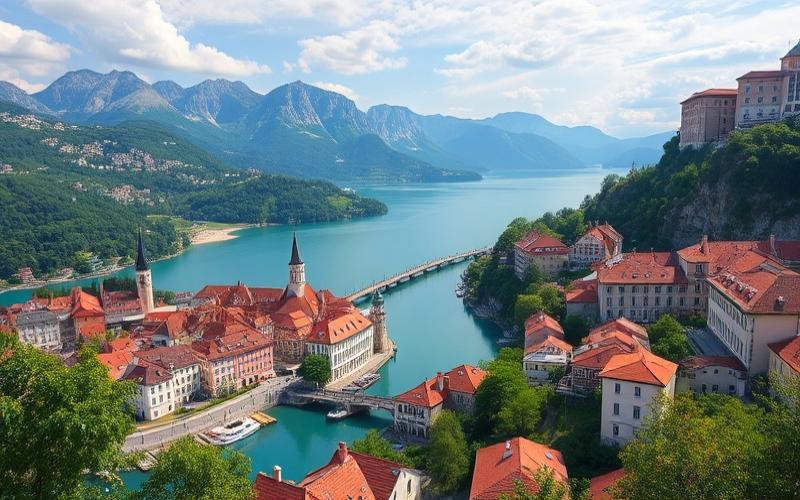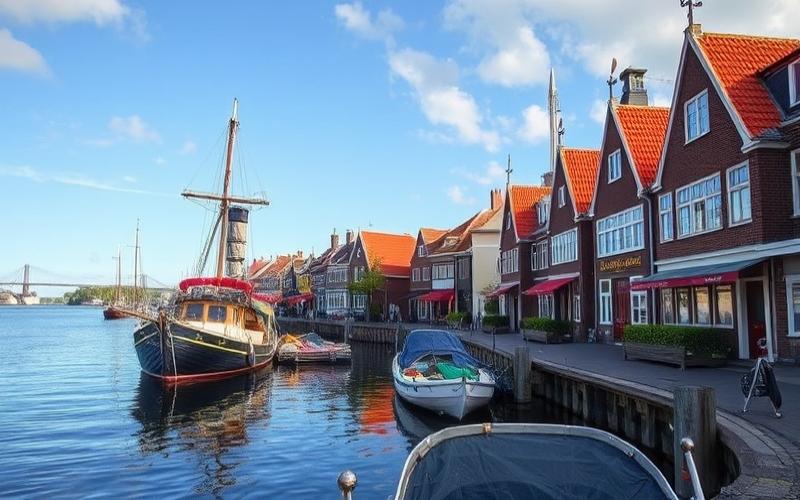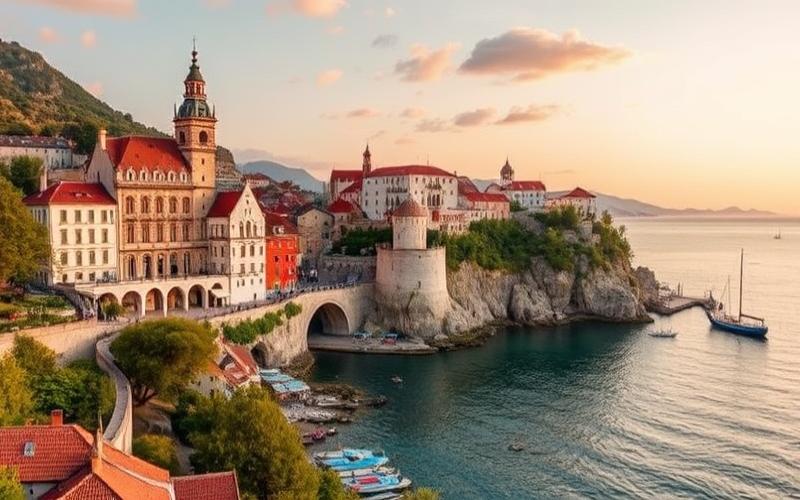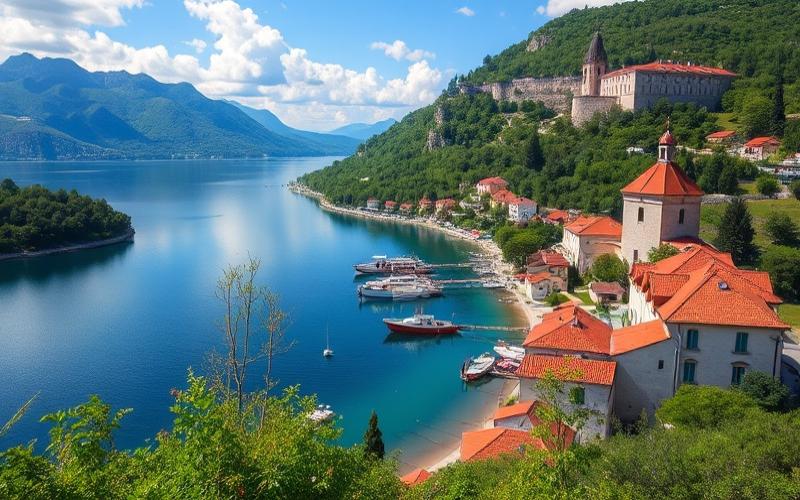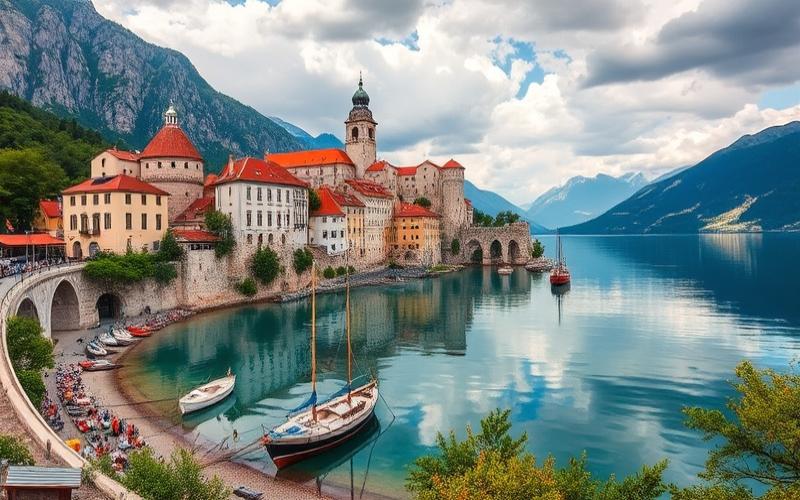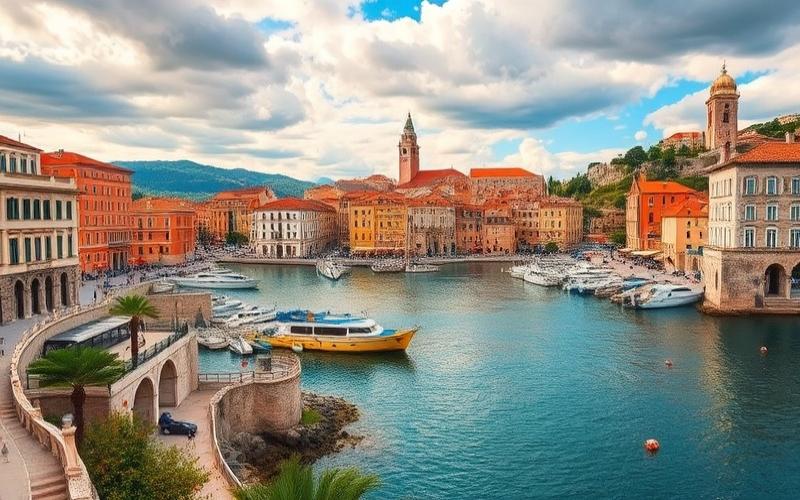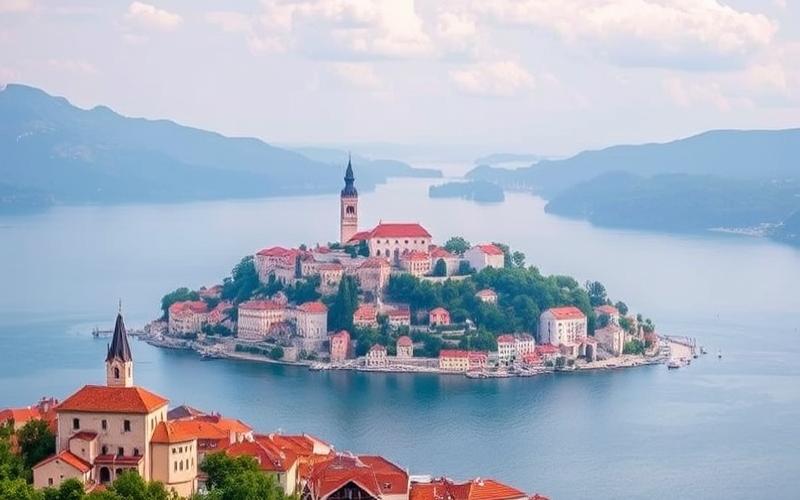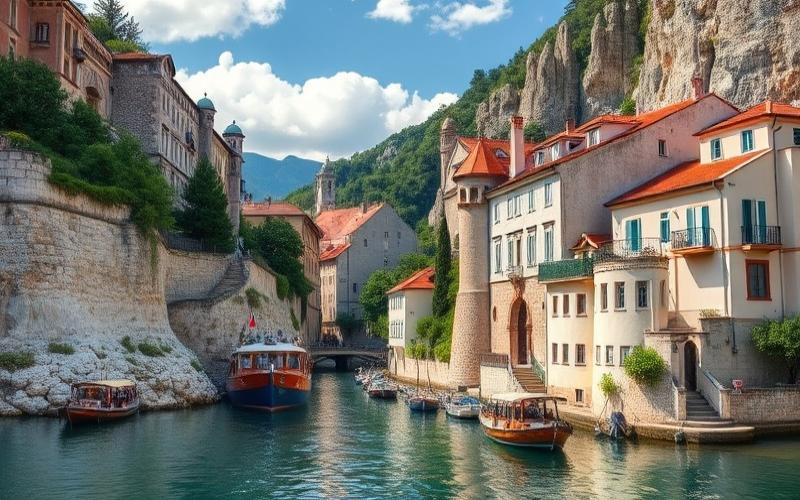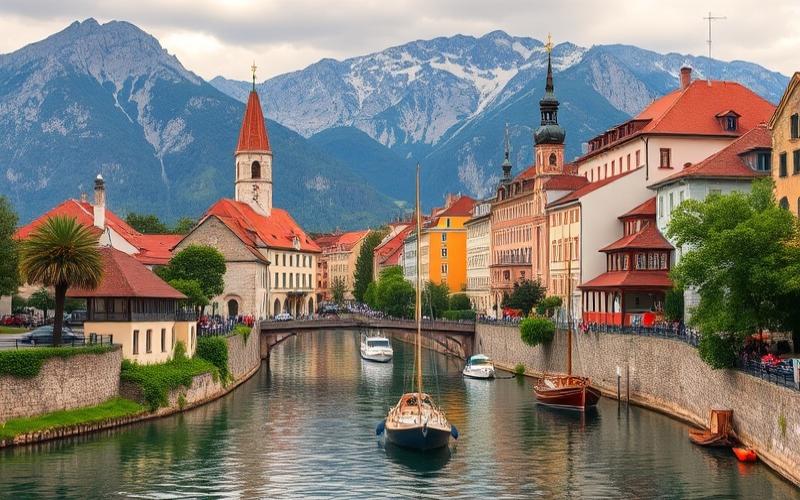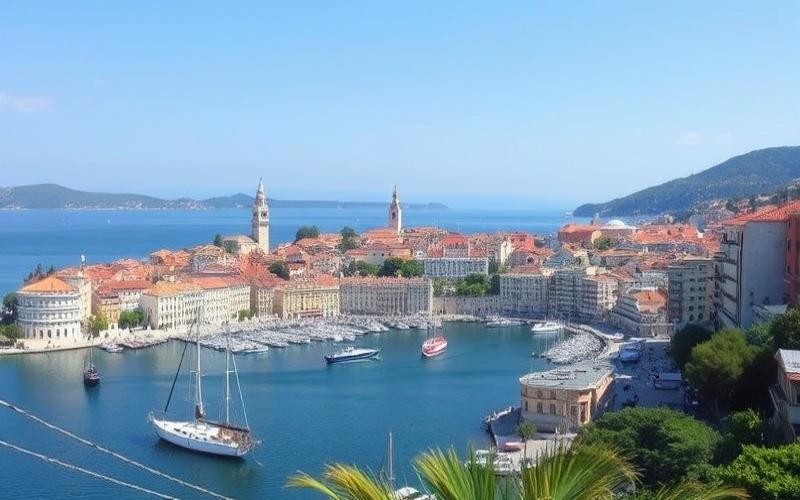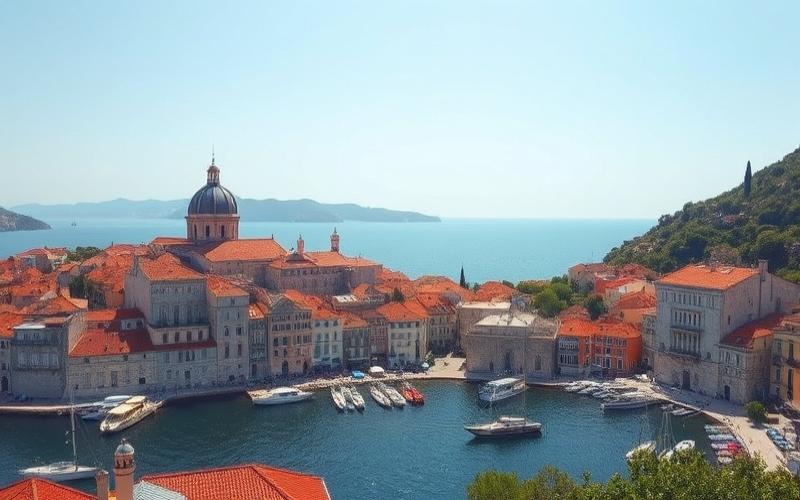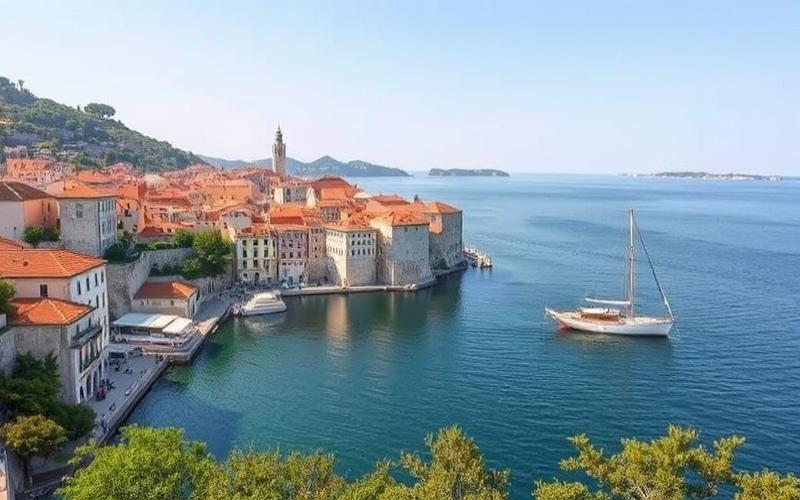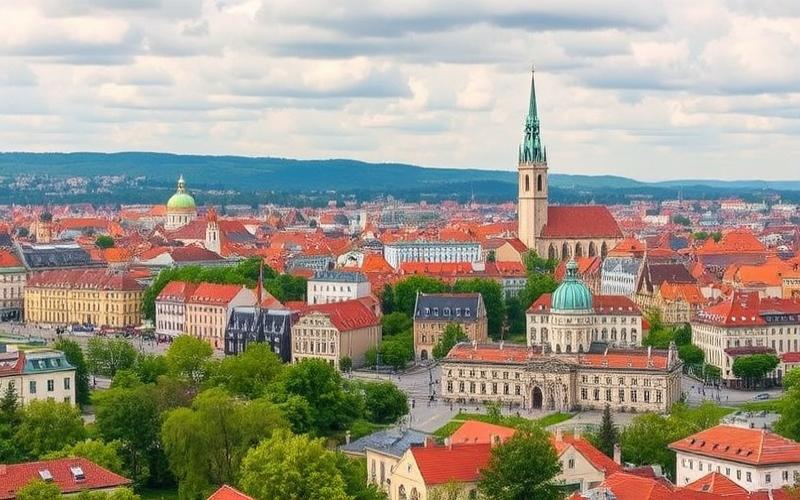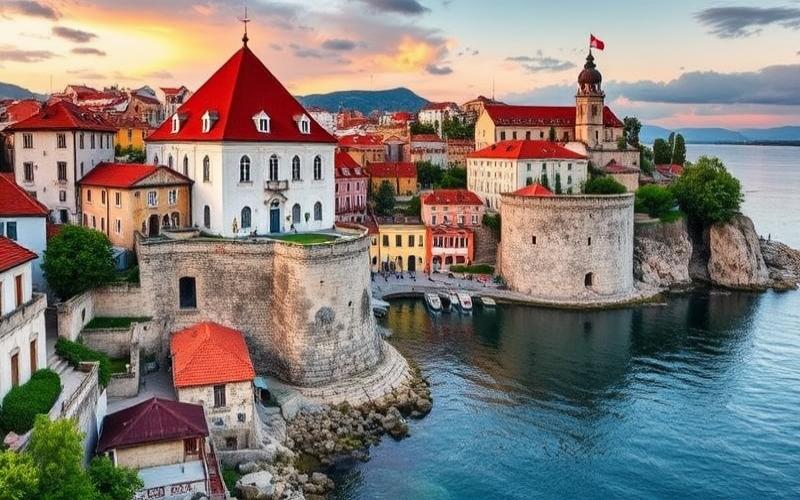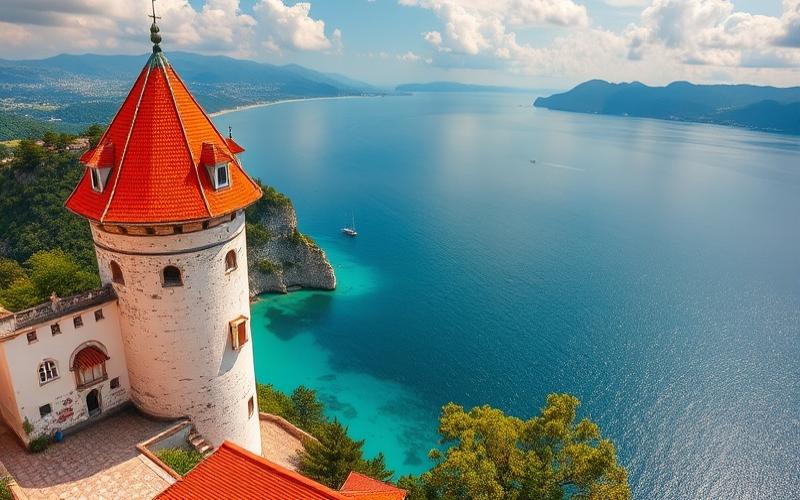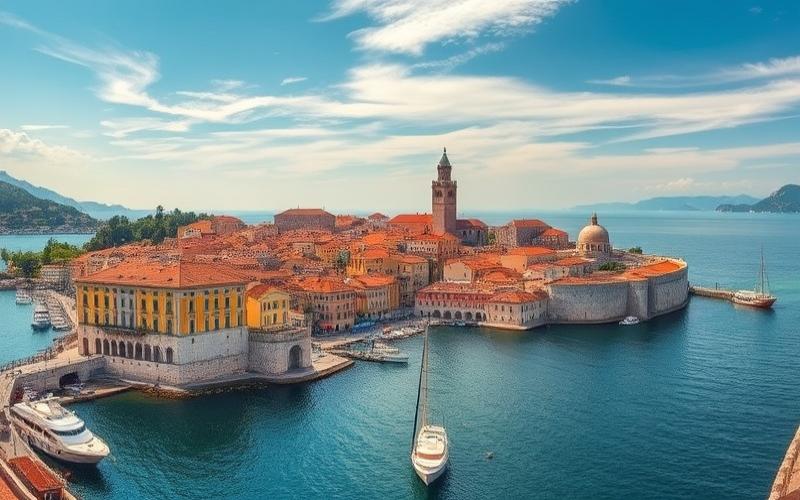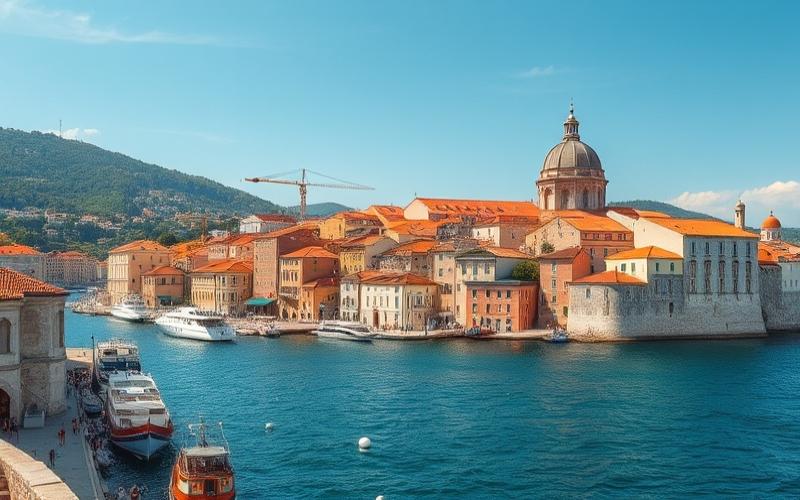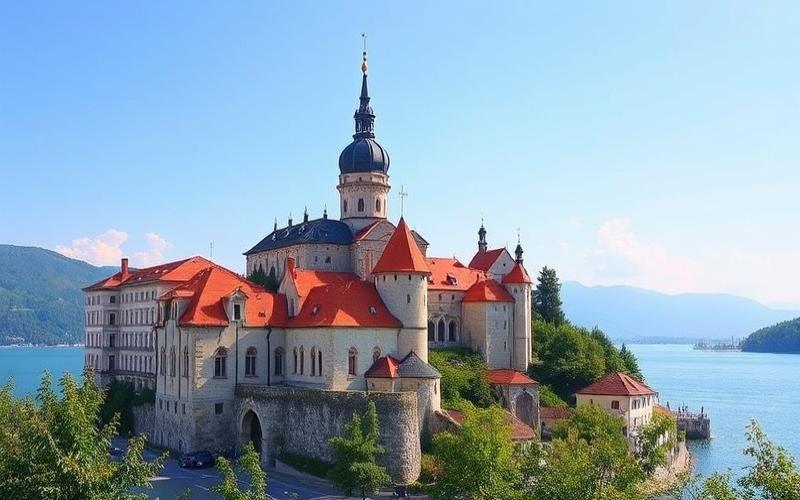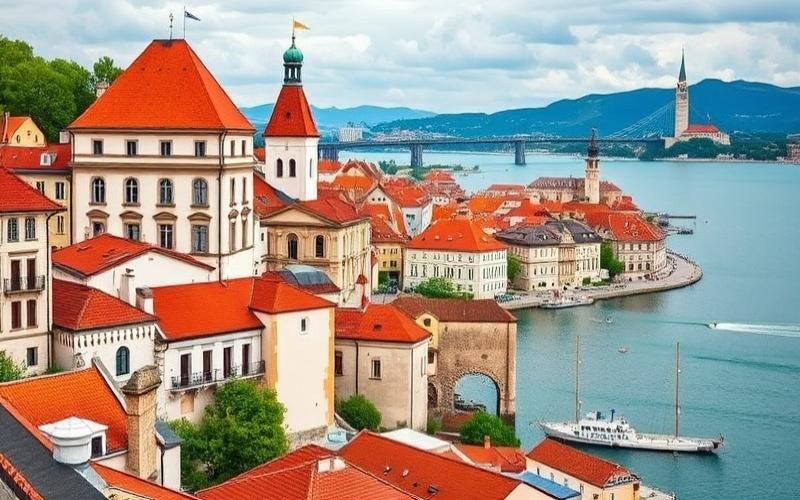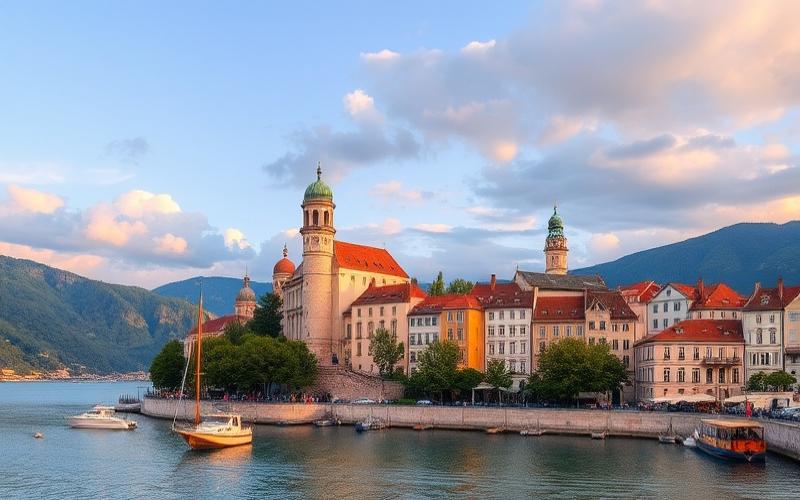
 Published on and written by Cyril Jarnias
Published on and written by Cyril Jarnias
Investing in Croatian real estate not only offers attractive growth opportunities but also significant tax benefits that appeal to many foreign investors.
As a European Union member, Croatia provides a stable legal framework and appealing tax incentives to encourage foreign investment. Investors can benefit from exemptions on certain types of income, long-term tax reductions, and tax relief during property acquisition.
Furthermore, with an expanding real estate market and thriving tourism sector, Croatian real estate promises lucrative returns while offering protection against inflation.
Benefits of Local Taxation for Investors in Croatia
Favorable Tax Rates in Croatia Compared to Europe
- Corporate Tax:
- Croatia: 12% (profits under 3 million HRK)
- France: up to 25%
- Germany: approximately 30%
- Italy: approximately 24%
- Personal Income Tax:
- Croatia: progressive rate between 20% and 30%, often lower than maximum rates in countries like France (55.4%) or Austria (55%)
| Country | Corporate Tax (%) | Max Income Tax (%) |
|---|---|---|
| Croatia | 12 / 18 | ~30 |
| France | ~25 | ~55 |
| Germany | ~30 | ~45 |
| Italy | ~24 | ~43 |
Investors thus benefit from generally lighter direct taxation in Croatia compared to most major EU countries.
Potential Tax Exemptions for Foreign Investors
- Partial or full exemption possible for major new investments.
- VAT reductions for certain new real estate properties and specific projects.
- Increased deductions for reinvesting profits in the real estate sector.
Tax Measures Encouraging Real Estate Investment
- Moderate property tax compared to many other European countries.
- Local incentives such as tax reductions for renovating historic buildings or tourism development.
- Simplified acquisition process with relatively low transfer duties.
Special Economic Zones and Associated Tax Benefits
Certain zones benefit from:
- Temporary corporate tax exemptions
- Reduced effective tax rates
- VAT or municipal tax advantages
These mechanisms are particularly present around major tourist hubs and seaports.
Positive Impact of Local Taxation on Return on Investment
Reducing the tax burden:
- Increases net rental yield
- Enhances long-term asset valuation through limited tax pressure during resales
Croatia’s political and fiscal stability provides increased visibility for investors, limiting risks related to potential sharp tax increases.
Recent Reforms Favorable to Real Estate Investors
Recent years have seen:
- Gradual reduction of standard corporate tax rate (from 20% to currently 18%/12%)
- Alignment with European standards facilitating cross-border transfers
- Introduction of OECD project aiming for global minimum tax set at 15%, ensuring transparency and fair competition between jurisdictions
The combination of low taxation + targeted exemptions + regulatory security makes Croatia an attractive environment for any foreign real estate investor today
Good to Know:
For real estate investors in Croatia, local taxation offers numerous advantages, including lower tax rates than several other European countries. Foreign investors can benefit from tax exemptions, particularly through the “Golden Visa” program, which provides reductions on certain property taxes and facilitates residency acquisition. Additionally, local taxation encourages investment through reduced rates on income and capital gains, contributing to better return on investment. Special economic zones in Croatia, such as Rijeka and Sibenik, offer additional tax benefits like corporate tax reductions. The recent 2023 tax reform aimed at simplifying and lightening the tax burden for investors has strengthened the attractiveness of the Croatian real estate market, making these investments even more lucrative.
How Croatia Facilitates International Real Estate Investment
The Croatian government has implemented several incentive measures to attract foreign investors, particularly in the real estate sector.
Main Attractiveness Measures:
- Tax Reductions: Reduced tax rates are applied based on activity type, particularly in production, technology centers, and support services. The Investment Promotion Act (IPA), amended in 2020, provides tax rebates or cash grants for projects in manufacturing, processing, innovation, or high-value-added services.
- Double Taxation Agreements: Croatia has signed numerous international agreements to avoid double taxation, thus simplifying taxation for foreign investors.
- Real Estate-Specific Tax Incentives:
- Real Estate Acquisition Tax: Generally set at 3% of the purchase price, this rate remains competitive compared to other European markets.
- No Restrictions for EU/EEA Nationals: EU/EEA citizens can freely purchase real estate properties.
- Investment Grants: Possibility to benefit from grants or tax reductions for innovative or strategically important projects.
Recent Legislative Reforms:
- Simplified Procedures for Non-Residents:
- Reduced administrative delays for obtaining Croatian tax numbers (OIB) and transaction registration.
- Streamlined procedures for EU/EEA nationals, who no longer need ministerial approval to purchase property.
- For non-EU/EEA nationals, the procedure remains possible via ministerial approval, but processing times have been shortened.
- Digitalization of Land Registries and Cadastres, facilitating access to information and legal security of transactions.
| Key Step | Estimated Timeframe |
|---|---|
| OIB Acquisition | Few days |
| Approval (non-EU/EEA) | Few weeks to months |
| Cadastral Registration | Few days to weeks |
Investor Visa Programs:
- Investor Visa: Croatia has implemented a visa system allowing foreign investors to reside for managing their investments, thus facilitating access to the real estate market.
- Residence Permit for Investors: Possibility to obtain a temporary residence permit for business management or creation, facilitating property purchase, management, and resale.
Concrete Examples of Recent Investments:
- Bouygues (France): Major investments in infrastructure and construction.
- Bechtel (USA): Partnerships in major infrastructure projects.
- Deutsche Telekom (Germany) and Ericsson (Sweden): Investments in telecommunications.
- Over 20% of real estate transactions in 2024 involved foreign investors, primarily European.
Strengths of the Croatian Real Estate Market:
- Equal Treatment between nationals and foreigners in legislation.
- Low Operating Costs for businesses.
- Enhanced Intellectual Property Protection.
- Growth in Tourism, Hospitality, and Second Home Investments.
Croatia positions itself as a prime destination for international real estate investment thanks to a competitive tax environment, simplified administrative procedures, and specific mechanisms for foreign investors.
Foreign Companies That Have Benefited from These Measures:
- Bouygues (construction)
- Deutsche Telekom (telecommunications)
- Coca-Cola (industry)
- Ericsson (technology)
These examples illustrate Croatia’s openness and the effectiveness of its measures to attract and secure foreign investment in the real estate sector and beyond.
Good to Know:
The Croatian government has implemented attractive measures for international real estate investors, including tax reductions and double taxation agreements that reduce tax burdens. Recent legislative reforms facilitate the property purchase process for non-residents, simplifying administrative formalities. Specific tax incentives for the real estate sector, such as exemptions or VAT reductions, are offered to stimulate investment. Additionally, special visa programs, like the “Golden Visa,” allow investors to reside in Croatia and access the local market more easily. Companies like Hilton and Marriott have recently invested in hotel projects in Croatia, taking advantage of these favorable conditions. These measures aim to energize the real estate market, making Croatia increasingly attractive to foreign investors.
Understanding Property and Residence Taxes in Croatia
Key Differences Between Property Tax and Residence Tax in Croatia
- Property Tax (real estate tax):
- This is an annual tax based primarily on the estimated (cadastral) value of the property.
- It applies to all property types: primary residences, secondary homes, commercial properties.
- The 2025 tax reform centralized this tax and standardized its calculation method nationwide.
- Residence Tax (municipal fee before 2025):
- Previously collected by municipalities to fund local services (waste, roads).
- Since January 2025, these fees have been integrated into the new centralized property tax.
Tax Calculation and Influencing Factors
| Property Type | Annual Rate Applied | Influencing Factors |
|---|---|---|
| Primary Residence | 0.2% | Official cadastral value |
| Secondary Residence | 0.3% to 0.5%* | Tourist location*, cadastral value |
| Commercial Use | 0.4% | Declared commercial activity |
*In certain tourist regions like Istria or Dubrovnik, the rate can reach up to 0.5% for vacation homes/apartments.
Other parameters:
- Property size directly impacts the amount due (larger area = higher taxable base).
- Proximity to sea or urban centers generally increases the tax base.
- Cadastral value is set by local administration according to official scales; revision can be requested under certain conditions.
Concrete Examples of Current Rates
- For a seaside villa valued at:
- €500,000 used as secondary residence in Dalmatia —> Possible rate: up to 0.5% meaning €2,500/year.
- Primary residence apartment in non-tourist city valued at €200,000 —> Applicable rate: 0.2% meaning €400/year.
Some municipalities still temporarily use a per m² system:
- Between €0.66 and €1.99 per m² according to specific municipal decisions for former fees.
Tax Obligations: Foreign Investors vs Local Residents
- Rules apply equally to foreigners and Croatian property owners.
- Foreign investors must appoint a local tax representative if non-permanent residents.
- No systematic exemption related to foreign status; only actual property use determines applicable rate.
Available Exemptions & Tax Reductions
- Properties used exclusively as primary residence or rented more than ten months/year often benefit from total or partial tax relief.
- Certain disadvantaged rural areas may offer temporary exemptions to encourage development.
- Administrative appeal possible if tax assessment deemed excessive (legal deadline: thirty days after notification).
Good to Know:
In Croatia, property taxes are calculated based on the cadastral value of properties, influenced by geographic location, size, and property use, with rates varying from 0.1% to 3% according to local specifics, while residence tax is primarily based on area and occupancy status. Foreign investors must declare their properties to Croatian tax authorities, just like residents, but may be eligible for attractive tax relief, particularly for purchasing properties to renovate or intended for tourism activities. For example, reductions may apply for investments in economically disadvantaged areas or for restoring historic buildings, thus enhancing the appeal of real estate investments in Croatia.
The low effective rates – especially compared to those in many other European countries – represent a significant competitive advantage for real estate investors seeking stable rental yields or building lasting assets without high annual charges.
Croatia vs Its Competitors: An Advantageous Tax Choice
Croatia stands out with a recent tax reform aimed at making the real estate market more attractive to foreign investors, particularly compared to competitors like Spain, Portugal, or Italy.
| Country | Real Estate Acquisition Tax | Annual Property Tax | Exemptions / Specific Incentives |
| Croatia | 3% (primary residence) | €0.60 to €8 / m² (from 2025) | Double taxation reduction, administrative simplification, equality between nationals and foreigners |
| Spain | ITP: 5-10% depending on region | Variable by municipality | Benefits for youth/families; planned increase for non-EU non-residents |
| Portugal | Approximately 6-8% | IMI: 0.3–0.45% of cadastral value; majority at min. rate in 2025 | IMI reduction based on dependents; fiscal stability; attractive residency options |
| Italy | Approximately 9% (excluding primary residence) | Variable by municipality | Less flexible tax regime than Croatia/Portugal |
Specific Points of the Croatian Regime:
- Since January 2025, the tax on real estate properties replaces that on secondary residences.
- All property owners — including foreigners — are subject to this tax.
- The annual amount varies from €0.60 to €8 per square meter, with scales adapted according to property type and use.
- Acquisition tax remains competitive (only 3% for primary residence) compared to Spanish or Italian rates often higher.
- The reform eliminates double taxation and simplifies administrative procedures.
Tax Incentives:
- Foreign investors benefit from identical treatment to nationals regarding property ownership and real estate taxation.
- The reform encourages sustainable development through targeted reductions for certain investment types (green/luxury properties).
- Croatia has not introduced significant restrictions or surtaxes against non-residents unlike Spanish projects aiming to increase taxes for non-EU buyers.
Effects on the Real Estate Market:
- These tax advantages promote a stable and predictable climate allowing international investors to plan acquisitions without major regulatory surprises.
- Administrative simplification attracts more investors wishing to avoid existing complexity in some competitor countries.
Summary List of Croatian Strengths:
- Clear and simple taxation from January 2025
- Low rates on acquisition/primary residence
- Elimination of double taxes
- National/foreigner equality in tax treatment
- No discriminatory restrictions towards non-EU investors
This framework makes Croatia particularly attractive compared to new constraints in Spain or the less flexible Italian tax regime. Croatian incentives thus directly contribute to local market dynamism while strengthening its European attractiveness.
Good to Know:
Croatia offers an attractive tax framework for real estate investors, with considerable tax exemptions and competitive tax rates compared to other European destinations like Spain, Portugal, and Italy. The country provides reduced VAT at 13% on purchases of new real estate properties, while several incentive programs, including tax reductions for rental properties, aim to stimulate foreign investment. Additionally, Croatia applies a fairly low annual property tax compared to Italy or Spain, where rates can reach 34% on rental income. These advantageous tax measures positively influence investment decisions, thus fostering the development of the Croatian real estate market and making the country a strategic choice for foreign investors seeking lucrative opportunities in Europe.
Disclaimer: The information provided on this website is for informational purposes only and does not constitute financial, legal, or professional advice. We encourage you to consult qualified experts before making any investment, real estate, or expatriation decisions. Although we strive to maintain up-to-date and accurate information, we do not guarantee the completeness, accuracy, or timeliness of the proposed content. As investment and expatriation involve risks, we disclaim any liability for potential losses or damages arising from the use of this site. Your use of this site confirms your acceptance of these terms and your understanding of the associated risks.


